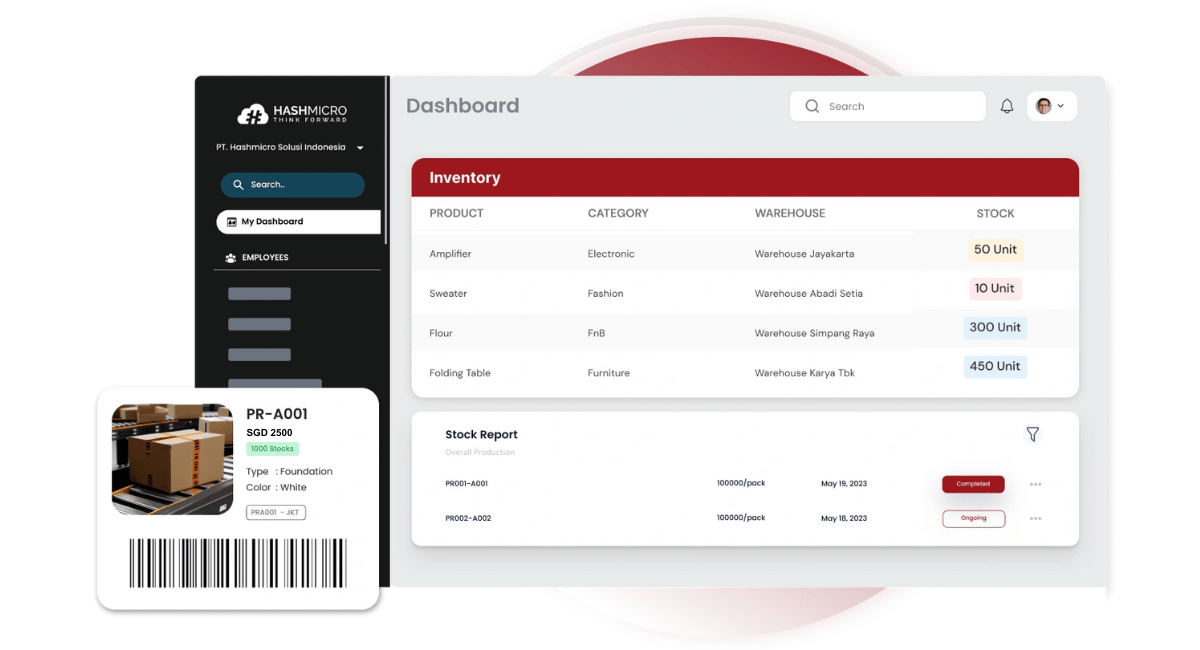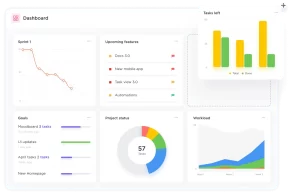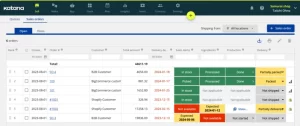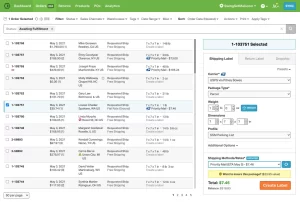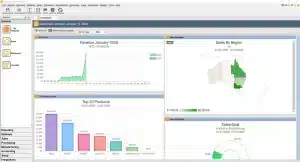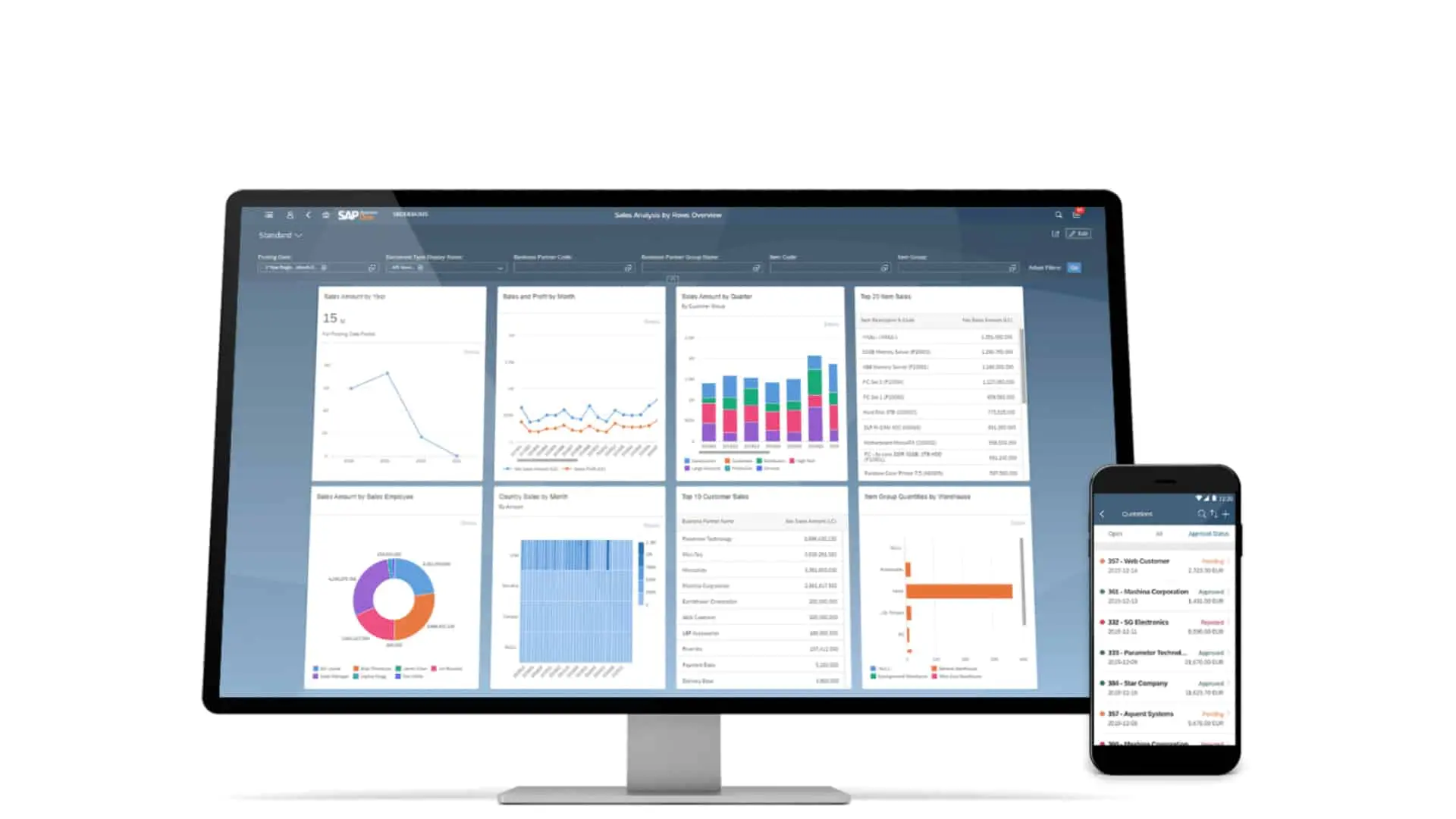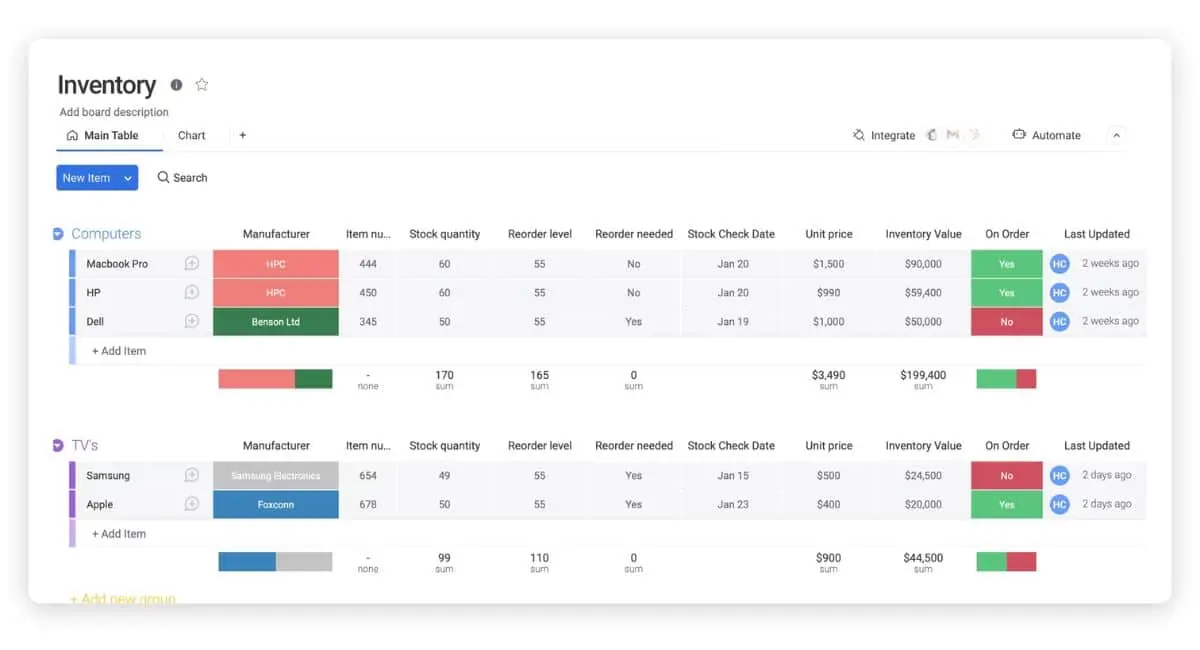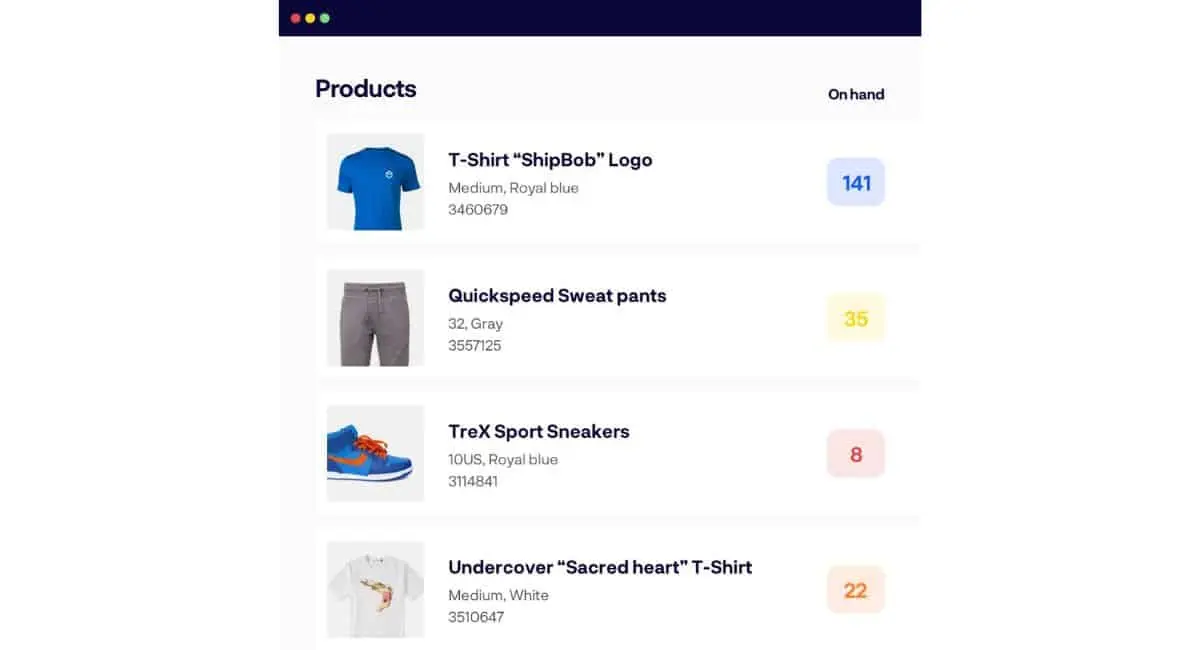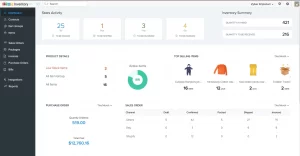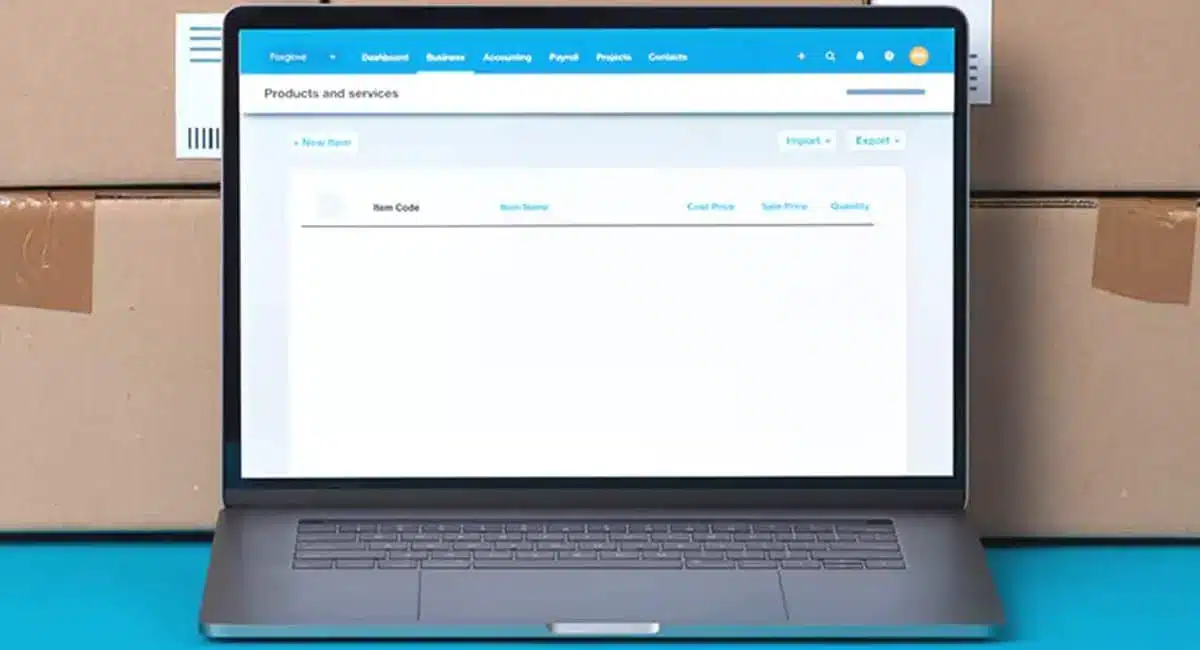Struggling to keep your inventory in check? The right inventory management software in Singapore can help you track stock effortlessly, minimize errors, and boost operational efficiency—ensuring your business runs without disruptions.
With so many solutions available, finding the ideal inventory system can be overwhelming. That’s why we’ve compiled a list of Singapore’s 12 best inventory management software options for 2025—offering powerful automation, real-time insights, and seamless integration to support your business growth.
Looking for a smarter way to manage inventory? Start with HashMicro’s Inventory Management System, trusted by businesses in Singapore for its efficiency and scalability. Or keep reading to discover the best system tailored to your business needs!
Key Takeaways
|
Top 12 Inventory Management Systems in Singapore Highlight
- HashMicro: Provides real-time inventory tracking, automated workflows, barcode scanning, and ERP module integration. Ideal for businesses of all sizes, offering seamless stock management and government grant support in Singapore.
- ClickUp: A versatile business management suite with an inventory operations module. It integrates inventory tracking with project management tools, providing a unified solution for businesses.
- Katana: A cloud-based inventory platform focused on manufacturing and order management. It offers multichannel sales tracking, SKU management, and seamless e-commerce integrations.
- Ordoro: Designed for e-commerce businesses, it streamlines order fulfillment, integrates with multiple sales channels, and offers efficient shipping management.
- Fishbowl: Best for manufacturing, warehousing, and distribution businesses. Features include inventory tracking, multi-location management, automated purchasing, and vendor management.
- NetSuite Inventory Management – A powerful cloud-based solution with multi-location tracking, real-time stock updates, cycle counting, and demand forecasting for better inventory optimization.
- SAP – An ERP-based inventory system designed for manufacturing and distribution businesses. It offers real-time stock tracking, inventory valuation, and data-driven decision-making tools.
- Oracle Inventory Management – Provides full visibility into inventory levels, warehouse operations, and material flows. It supports automated reorder points, multi-unit tracking, and facility monitoring.
- Monday.com – A flexible project and inventory management tool with real-time stock tracking, order management, and integration capabilities for seamless workflow automation.
- ShipBob – Best for e-commerce businesses looking for real-time inventory tracking, shipping management, and order fulfillment across multiple warehouses.
- Zoho Inventory – A cloud-based inventory and order management software with real-time tracking, seamless integration with Zoho CRM, and automation for small to medium-sized businesses.
- Xero – An easy-to-use inventory management system offering real-time stock tracking, sales performance insights, and seamless invoice integration, best suited for small businesses.
Table of Content:
Table of Content
What is Software Inventory Management?
Software inventory management is the process of overseeing and monitoring the software used within an organization. This includes identifying, tracking, and managing software licenses and ensuring compliance with company policies and regulations.
Effective software inventory management allows organizations to optimize software usage, reduce costs, and avoid legal risks associated with unauthorized software use. Additionally, this system helps identify the need for software updates or replacements, ensuring that company operations run more efficiently and productively.
Benefits of Using Software Inventory for Companies
Using software inventory offers several benefits for companies, including:
- Operational Efficiency: Simplifies the management and monitoring of software, reducing the time and effort required.
- Cost Savings: Avoids unnecessary software license purchases and reduces the risk of fines due to non-compliance.
- License Compliance: Ensures all software is properly licensed, avoiding legal issues.
Data Security: Keeps software updated with security patches, protecting data from threats. - Resource Optimization: Analyzes software usage to allocate resources more effectively.
- Increased Productivity: Reduces downtime and ensures employees have the necessary software to work efficiently.
Implementing software inventory provides significant benefits for companies, from operational efficiency to enhanced security and productivity.
What Should You Look for in Inventory Management Software?
When selecting an inventory management system, it’s crucial to focus on precision. Here are the core features that signify a high-quality inventory management software to keep in mind:
- User-Friendliness: Opt for software that offers an intuitive interface and requires little to no training.
- Real-Time Updates: Ensure the software provides immediate synchronization of inventory levels across all storage locations and sales channels. This is a key feature of cloud-based inventory systems, which help maintain accurate stock counts in real time.
- Barcode Scanning Functionality: The ability to scan barcodes for quick product identification and management is a must-have feature.
- Alerts for Stock Levels: The system should be able to send notifications or alerts for low stock levels or when items need reordering.
- Adaptability and Growth: As your business expands, your inventory management system should be capable of handling growing operational demands and complexities.
- Mobile Compatibility: Look for software that supports mobile access, allowing for flexible and efficient inventory management on the go.
- Task Automation: Select software that offers automation features to minimize manual data entry and reduce errors associated with human intervention.
- Seamless Integration: The ideal inventory management software should effortlessly integrate with other essential business systems, enhancing overall efficiency and productivity.
Best 12 Inventory Software Solutions for Your Business
After understanding the importance of having the right inventory management system, the next step is to choose the software that best fits your business needs.
With numerous options available, finding the optimal solution can be challenging. Below, we have compiled a list of the top 12 inventory management Singapore solutions that can help your company manage its inventory more efficiently and effectively.
Read on for a comprehensive review to find the right solution for your business.
1. HashMicro Inventory Management System
HashMicro provides a quick, easy, and complete inventory management solution for various types of businesses of all sizes; including wholesale, retail, food and beverage, construction, engineering, manufacturing, real estate, and more.
Therefore, HashMicro Inventory Management Software helps many companies in Indonesia and Singapore simplify their inventory management, from generating barcodes, monitoring stock levels in real-time, picking and packing processes, ordering to suppliers, and shipping orders to customers.
Features:
- Efficient Goods Tracking: Barcode management ensures precise and swift tracking of goods.
- Streamlined Stock Requests: Automatic stock request management handles requests across store branches or warehouses.
- Tailored Integration: Customization and integration align with your company’s unique requirements and growth.
- ERP Module Integration: Seamless integration with ERP modules like accounting, purchasing, and POS software.
- Automated Inventory Operations: Optimal and automatic stock recording streamlines warehouse and inventory processes.
- Partnership with Singapore Government Grants: Maintain financial health with support from the Singapore Government’s EDG up to 50% and NTUC CTC Grant up to 70%.
| Pros | Cons |
| ✓ Easy integration with other modules without requiring 3rd party assistance. | × Not suitable for SMEs which have simple needs compared to large-scale enterprises. |
| ✓ Data security is guaranteed with ISO certification. | × Implementation duration may vary based on the level of customization wanted by the company. |
| ✓ Wide choice of installation types from cloud, on-premise, and hybrid. | |
| ✓ Ease of monitoring from anywhere with mobile app integration and offline access. | |
| ✓ Lifetime customer service and support after purchase. |
To explore how HashMicro’s inventory system in Singapore can revolutionize your inventory management experience, and to check out the tailored pricing schemes, click on the banner below. Unlock the potential for seamless inventory control and witness firsthand the transformative power it brings to your business operations.
2. ClickUp
ClickUp is a project management tool that offers features including ClickUp Inventory, an inventory operations management software designed to simplify the management of large or complex inventories. This software aims to enhance project management efficiency.
Features:
- Simplifies managing large or complex inventories.
- Analyzes inventory trends for data-driven decisions.
- Offers templates for tracking stock movement, availability, and peak efficiency.
- Provides a 360° view of product information.
- Customizable interface.
| Pros | Cons |
|---|---|
| ✓ Versatile Project Management | × Slow Mobile Performance |
| ✓ Comprehensive Dashboards | × Learning Curve |
| ✓ Inventory Management Template |
3. Katana
Katana is a cloud inventory platform that offers manufacturing and inventory management software. It caters to small and medium-sized businesses, providing features like inventory tracking, order management, and production management.
Users have reported several issues with Katana Inventory Management, including sudden and significant price increases, system glitches that are slow to be resolved, and a lengthy, complicated onboarding process. These drawbacks have led to frustration and dissatisfaction among some users.
Features:
- Multichannel sales and production management
- SKU management
- Traceability
- Integrations with e-commerce platforms
| Pros | Cons |
|---|---|
| ✓ Implementation service | × Not ideal for drop shippers |
| ✓ Product management | × Primarily for SMBs |
| ✓ Integration capabilities | × Additional costs for extra users |
4. Ordoro
Ordoro is a comprehensive e-commerce inventory management system designed to optimize warehouse operations for growing merchant businesses. It caters to a range of businesses, from those shipping a hundred items to those processing half a million orders monthly.
Some users have reported encountering error messages when Ordoro attempts to communicate with their websites. Additionally, there have been instances where the documentation provided for these error codes was insufficient, making troubleshooting more challenging.
Features:
- Manages the entire inventory process for businesses shipping varying quantities of items monthly.
- Drives efficiency in every operation involved in the multichannel sales process.
- Allows integration with different sale channels for improved fulfillment workflows.
| Pros | Cons |
|---|---|
| ✓ Shipping options monitoring | × Lacks a mobile version |
| ✓ Return label creation | × Pricing is considered expensive for small businesses |
| ✓ E-commerce platform integration | × Updates occur once every hour, not in real-time |
5. Fishbowl
Fishbowl is an inventory management Singapore designed to streamline and optimize inventory-related processes for businesses, particularly those in manufacturing, warehousing, and distribution. It serves as a robust tool to track inventory, manage stock levels, handle orders, and enhance overall operational efficiency.
Some users have reported that Fishbowl can be prone to crashing, requiring them to restart the program during tasks. Additionally, there are recurring issues with line items displaying as zero, which prevents orders from shipping and necessitates frequent support calls to resolve.
Features:
- Inventory tracking system.
- Multi-location management.
- Auto purchasing.
- Vendor management.
- Payment processing, and order management.
| Pros | Cons |
|---|---|
| ✓ Extensive Inventory Management Capabilities | × Initial Complexity for Setup |
| ✓ Multi-Channel Sales Integration | × High Cost of Implementation and Maintenance |
| ✓ Scalability for Growing Businesses | × Steeper Learning Curve for New Users |
| ✓ Robust Reporting and Analytics Tools | × Limited Customization for Unique Needs |
| ✓ Efficient Order Management | × Occasional Software Performance Issues |
6. NetSuite Inventory Management
NetSuite offers various features, including multi-location fulfillment, replenishment, cycle counting, traceability, and item visibility. These features help minimize manual processes, automate inventory management, reduce handling costs, and optimize cash flow.
Some users have noted that while NetSuite offers robust features, its integration process can be time-consuming and may involve additional costs. Additionally, the system’s interface isn’t always intuitive, which can present challenges during setup and everyday use.
Features:
- Real-time inventory counts.
- Multi-location tracking.
- Lot and serial tracking.
- Demand forecasting.
| Pros | Cons |
|---|---|
| ✓ Automates inventory management | × Subscription pricing may change over time |
| ✓ Reduces handling costs | × Limited basic support, additional support at extra cost |
| ✓ Optimizes cash flow | |
| ✓ Provides clear visibility into stock |
7. SAP
SAP ERP System provides a powerful system type module to help manufacturing and distribution businesses better manage their inventory. Therefore, this module facilitates efficient real-time, optimizes the levels of storage, and ensures timely shipping with the ability to track and record all stock transfers.
Some users have mentioned that SAP Inventory Manager comes with high initial costs and a complex implementation process, which can be challenging for smaller businesses. Additionally, its extensive features may require a steep learning curve, often demanding ongoing training and support for effective use.
Features:
- Inventory tracking system.
- Goods receipt and issue.
- Inventory valuation.
- Reporting and analysis.
| Pros | Cons |
|---|---|
| ✓ Faster decision making | × Complex system |
| ✓ Reliable sharing of data | × Lengthy implementation process |
| ✓ Enhanced financial management | × High prices |
| ✓ Better utilization of time and money | × Disappointing customer support |
| ✓ Provides tools to improve inventory | |
| ✓ levels and track movement of materials |
8. Oracle Inventory Management
There are provides comprehensive visibility related to the management of material flows, warehouse work, and product costs throughout the supply chain.
Some users have reported that Oracle can be complex, making it challenging for non-technical users to operate effectively. Additionally, the system’s sensitivity during development can lead to a higher expectation of errors, which may hinder the development process.
Features:
- Proactively monitor facility operations and inventory levels.
- Support discrete inventory, process inventory, and spare parts in a single solution.
- Automate reorder points and replenishment strategies.
Pros Cons ✓ Proactively monitor facility operations × Complex system ✓ Support discrete inventory, process inventory, and spare parts in a single solution × Lengthy implementation process ✓ Track global inventory balances and transact in dual units of measure × High prices ✓ Flexibly define inventory categories and locations × Limited customization ✓ Automate reorder points and replenishment strategies
9. Monday.com
Monday.com, known for its time and project management capabilities, extends its functionality to include inventory control featuring e-commerce and order management, and seamless third-party integrations.
Some users have found Monday.com overwhelming due to the flood of email notifications, which quickly clutters their inboxes. Others felt that the platform’s interface lacked the depth and flexibility they needed, ultimately leading them to switch to alternative tools after extended use.
Features:
- Facilitates effective management of e-commerce-related tasks.
- Provides control over inventory processes.
- Enables users to access and manage inventory on the go.
- Streamlines the process of managing orders efficiently.
- Integrates with third-party tools and systems.
| Pros | Cons |
|---|---|
| ✓ Ready-made templates | × Mobile version lacks optimization and some functionalities |
| ✓ Intuitive dashboards | × Complex especially for advanced inventory features |
| ✓ Flexibility in project management | |
| ✓ Integration harmony |

Fun Fact
10. ShipBob
ShipBob software for inventory management tool tailored for ecommerce enterprises, offering immediate insight into stock levels and shipping statuses across numerous warehouses.
Some users have reported significant challenges with ShipBob’s services, including lost inventory, frequent order delays, and subpar customer support. These issues have led to customer attrition and frustration among businesses relying on timely deliveries.
Features:
- Inventory tracking.
- Shipping management.
- API access.
- Order management.
| Pros | Cons |
|---|---|
| ✓ Multi-Channel Fulfillment Capabilities | × Higher Fulfillment Costs for Smaller Businesses |
| ✓ Distributed Warehousing Network | × Limited International Shipping Options |
| ✓ Integration with Major Ecommerce Platforms | × Complex Pricing Structure |
| ✓ Real-Time Order and Inventory Management | × Customer Support Challenges |
| ✓ Streamlined Shipping and Order Tracking | × Minimum Order Requirements for Usage |
11. Zoho Inventory
Zoho Inventory is a cloud-based inventory and order management software designed to cater to the needs of growing businesses. The software offers real-time tracking and management of stock levels.
Some users have faced issues with Zoho Inventory’s customer support, citing unhelpful responses and refusal to escalate problems to managers. Additionally, integration challenges with platforms like Shopify and the lack of features like pick lists have complicated inventory and warehouse operations.
Features:
- Real-time inventory tracking.
- Reporting tools.
- Integration with Zoho CRM.
| Pros | Cons |
|---|---|
| ✓ Suited for Small Businesses | × Limited Features and Customization |
| ✓ Comprehensive Integration | × Accuracy Issues |
| ✓ Real-Time Shipping Rates | × Pricing Dependence on Orders |
| ✓ Inventory Tracking |
12. Xero
Xero offers an inventory management software solution to help businesses manage their stock efficiently. It provides real-time tracking of stock levels. The system also emphasizes simplicity and ease of use, allowing users to stay on top of their numbers.
Some users have expressed concerns about Xero’s inventory management capabilities, noting the absence of features like delivery notes or packing slips. While workarounds exist, they can be cumbersome, requiring multiple additional steps, which may hinder efficiency for businesses that rely on these documents.
Features:
- Quick and easy inventory management
- Real-time stock tracking
- Sales performance insights
- Invoice integration
| Pros | Cons |
|---|---|
| ✓ User-friendly | × Limited customization |
| ✓ Real-time monitoring | × Businesses with more extensive needs may incur higher costs |
| ✓ Sales performance insights |
What to Consider When Selecting Inventory Management Software
A reliable inventory management software should prioritize precision. Key indicators of a dependable inventory management tool or software include:
- Usability: Opt for platforms featuring a user-friendly interface and requiring minimal learning efforts.
- Real-time Syncing: Ensure stock data remains current and synchronized across all warehouses and sales channels in real-time.
- Barcode Compatibility: The system should support a barcode tracking system, facilitating easier product identification and tracking.
- Inventory Alerts: Ability to set up notifications and alerts for products out of stock, prompting restocking actions.
- Scalability: Look for a tool capable of accommodating business growth, handling increased data and more complex inventory tracking needs.
- Mobile Accessibility: Compatibility across a variety of devices allows for greater flexibility in inventory management.
- Automation: Choose platforms that automate repetitive tasks, reducing dependency on manual inputs and minimizing potential human errors.
- Integration Abilities: Opt for tools that seamlessly integrate with other business software, ensuring a cohesive workflow.
Conclusion
Whichever inventory system you choose, it is essential to ensure that it aligns with your budget and inventory requirements. For any questions related to inventory management software, feel free to visit HashMicro’s website and submit your inquiries.
HashMicro offers a wide range of solutions tailored to your inventory management system needs. They provide comprehensive support to help you select the best system for your business.
Additionally, to gain a better understanding of their offerings, you can try the free demo of HashMicro’s inventory software Singapore, which allows you to experience the features and benefits firsthand.

FAQ About Inventory Management
-
What features should I look for when selecting inventory management software?
The features you should prioritize depend on your business needs. However, essential features often include barcode management, stock tracking, integration capabilities, automated stock requests, customization options, mobile accessibility, and support for multiple locations or warehouses.
-
How do I determine the best inventory software for my business in Singapore?
Evaluate software based on scalability, ease of integration with existing systems, security measures, user-friendliness, customer support, customization options, pricing models, and whether the software aligns with your specific industry requirements.
-
What are the potential challenges of implementing inventory software?
Challenges can include a complex implementation process, the need for system integration, potential downtime during deployment, staff training requirements, data migration issues, and ensuring the software’s adaptability to changing business needs.
-
Can these inventory systems handle multi-location inventory management software efficiently?
Yes, most of the top inventory management software in Singapore offer features to manage inventory across multiple locations or warehouses. They enable users to monitor stock levels, transfers between locations, and provide real-time visibility into inventory across different sites.
-
How do these inventory systems enhance inventory accuracy and streamline operations?
These systems utilize barcode scanning, automation of stock movements, cycle counting, and real-time tracking to minimize errors and discrepancies in inventory counts. They also optimize inventory levels, reduce handling costs, and automate reorder points, leading to more efficient operations.





